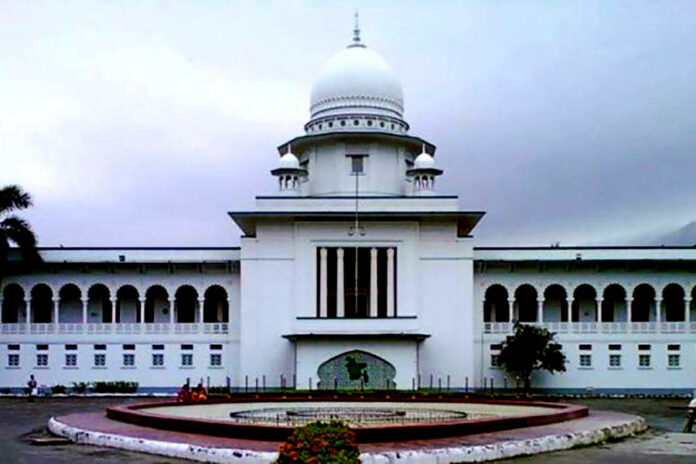Dhaka [Bangladesh]: The High Court Division of the Bangladesh Supreme Court has partially annulled the Fifteenth Amendment to the Constitution, reinstating the non-partisan, neutral caretaker government system, according to legal representatives.
The ruling was delivered by a High Court bench comprising Justice Farah Mahbub and Justice Debashish Roy Chowdhury, with Senior Justice Farah Mahbub reading the main judgment.
Court Observations
The High Court stated that the caretaker government system was established on the foundation of political consensus, making it a fundamental element of the constitution. The court further noted:
- The Fifteenth Amendment, which abolished the caretaker government in 2011, disrupted the basic structure of the constitution, which is rooted in democracy.
- Fair and credible elections are essential for the sustenance of democracy, emphasizing that the empowerment of the people is the cornerstone of the constitution.
Although the Fifteenth Amendment will not be entirely repealed, the court declared that the provisions affecting the caretaker government system must be revised.
Background on the Caretaker Government
The caretaker government system was originally designed to ensure neutrality and fairness during election periods by temporarily transferring power to a non-partisan body. However, the system was abolished in 2011 under the Fifteenth Amendment, sparking debates on its necessity for free and fair elections.
Political Context and Election Timeline
Bangladesh’s Chief Adviser Muhammad Yunus, during his Victory Day address on December 16, indicated that the next general elections could occur between late 2025 and mid-2026. He stressed the importance of political consensus and remarked:
“If political consensus allows us to conduct elections with accurate electoral rolls and implement reforms, elections may be possible by the end of 2025.”
However, Yunus acknowledged that additional time might be required for necessary reforms, stating:
“The timing of elections can be fixed between the end of 2025 and the first half of 2026.”
Recent Political Instability
The High Court’s decision comes in the wake of significant political unrest. On August 5, a student-led movement ousted former Prime Minister Sheikh Hasina following weeks of protests and violence that resulted in over 600 deaths. Sheikh Hasina fled to India, and an interim government led by Yunus assumed charge.
This ruling is seen as a critical step towards restoring democratic stability in Bangladesh, ensuring electoral fairness, and addressing the ongoing political challenges.


